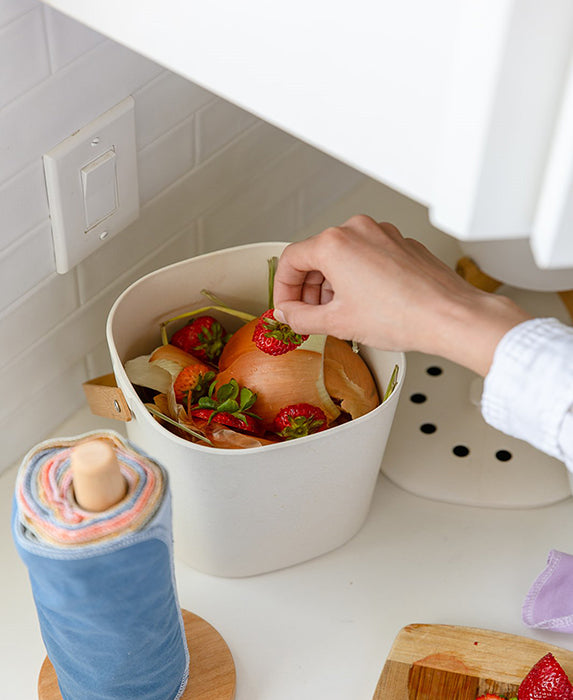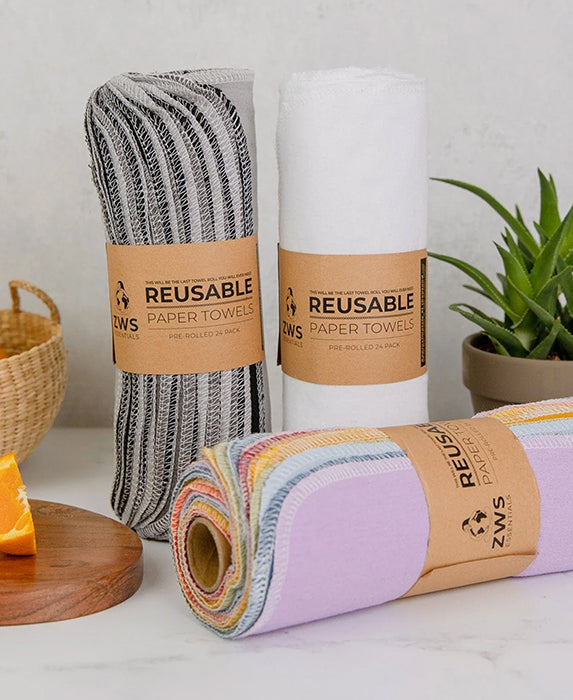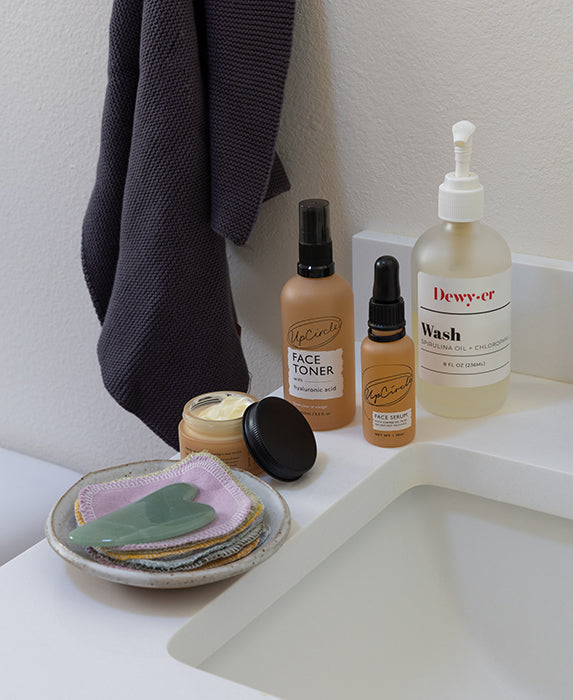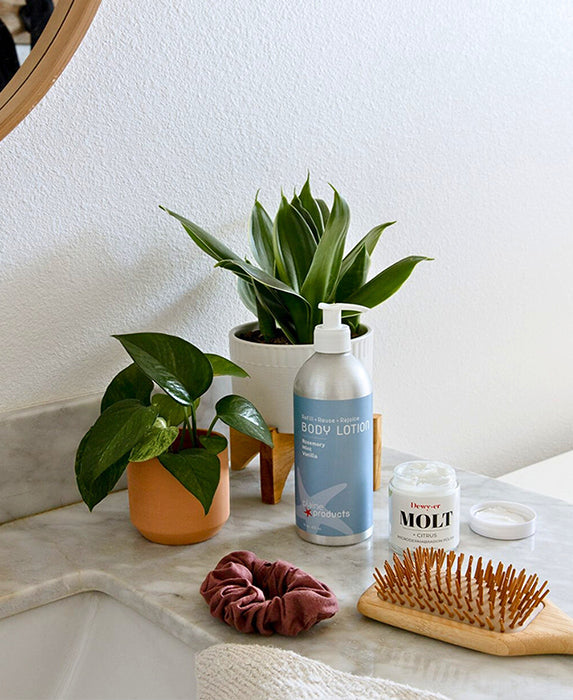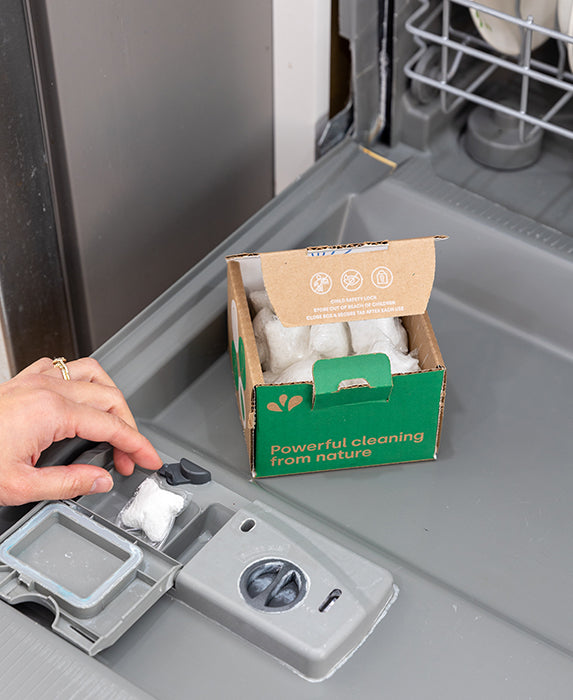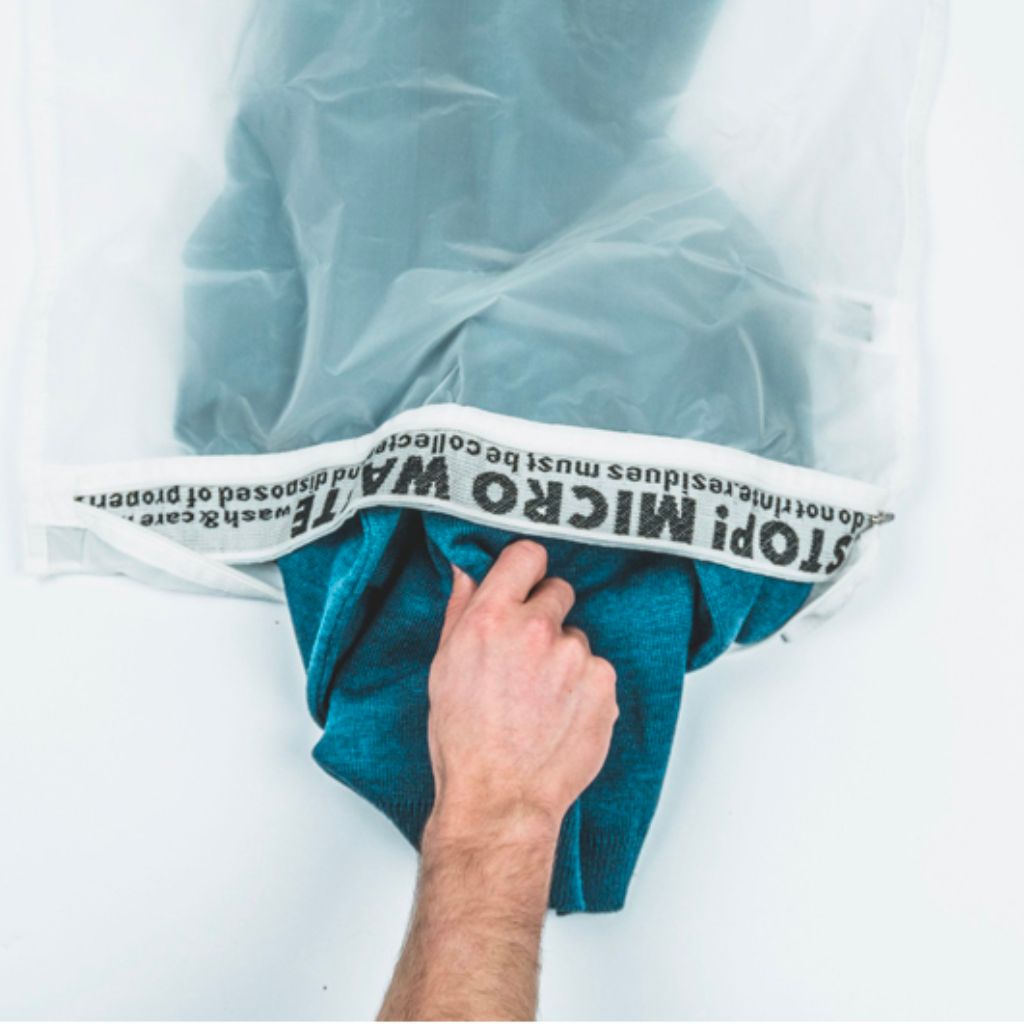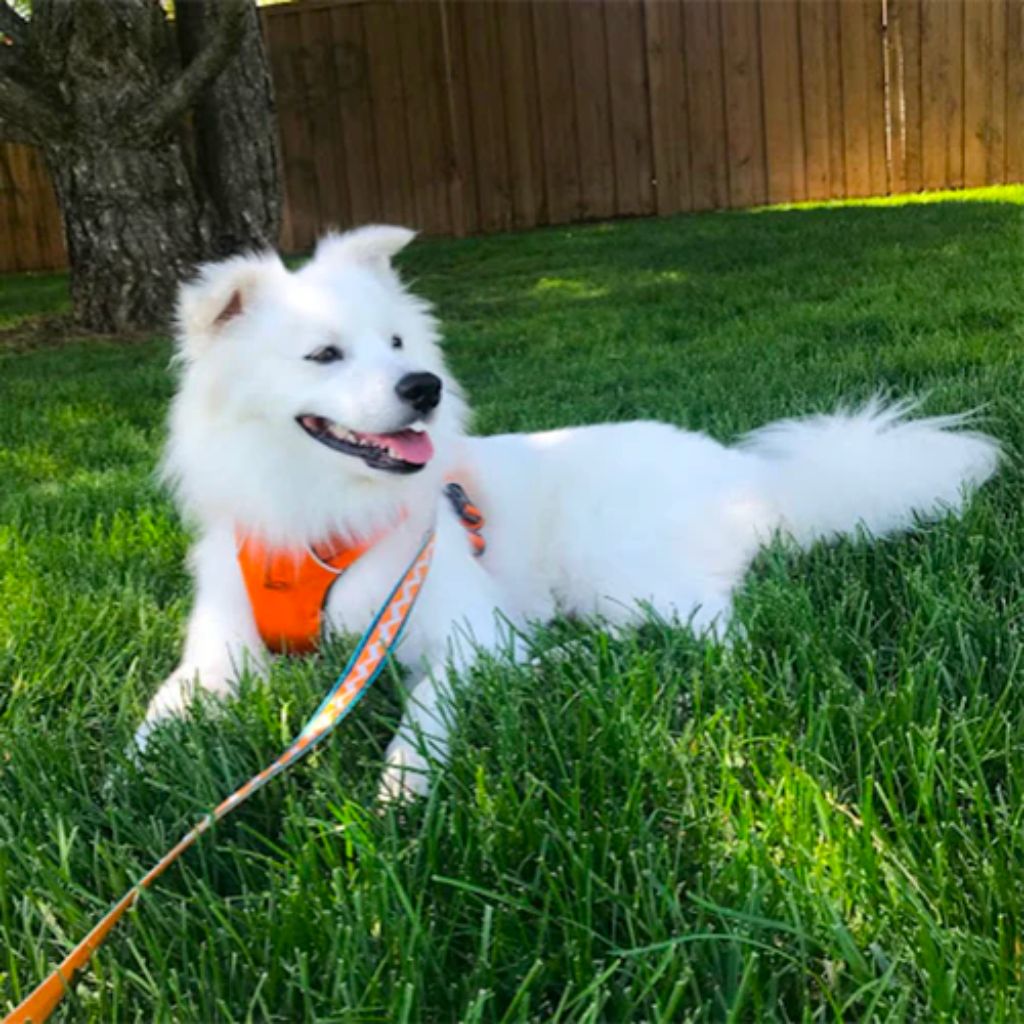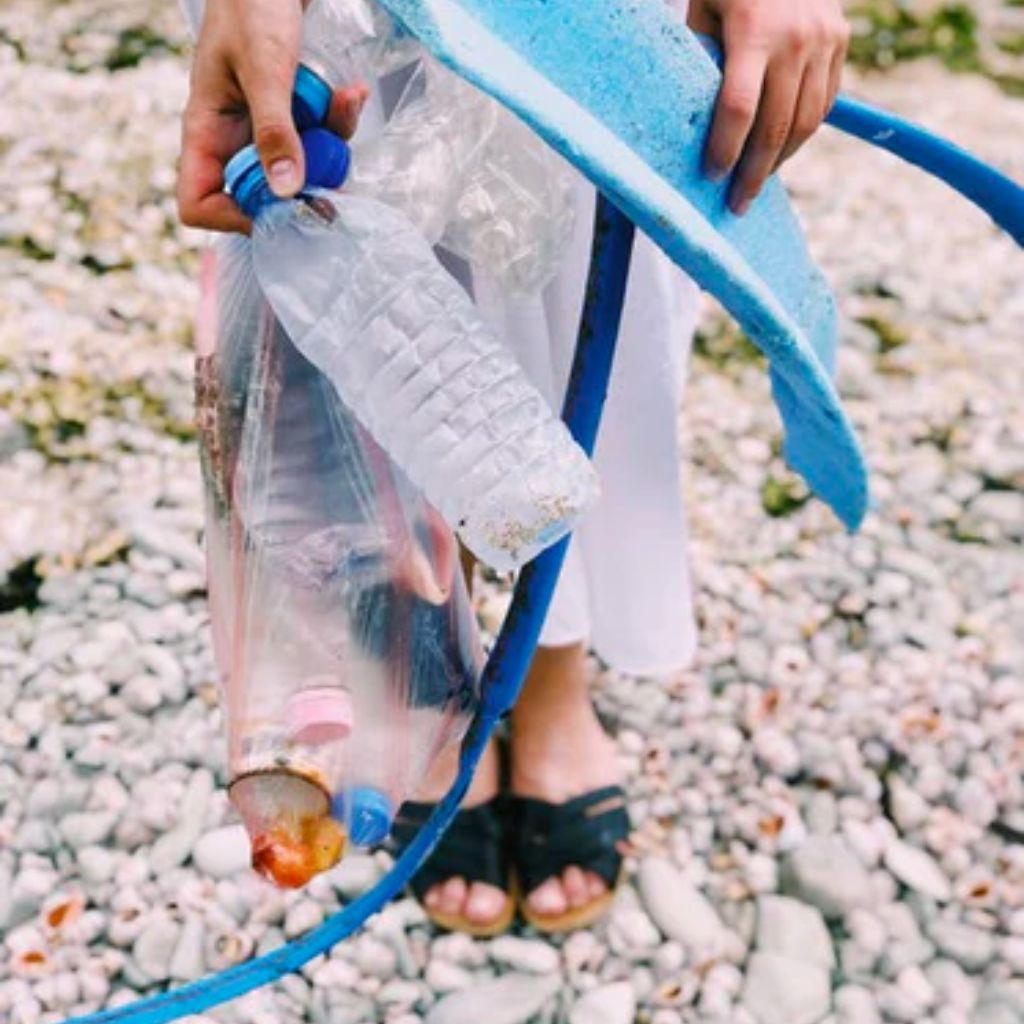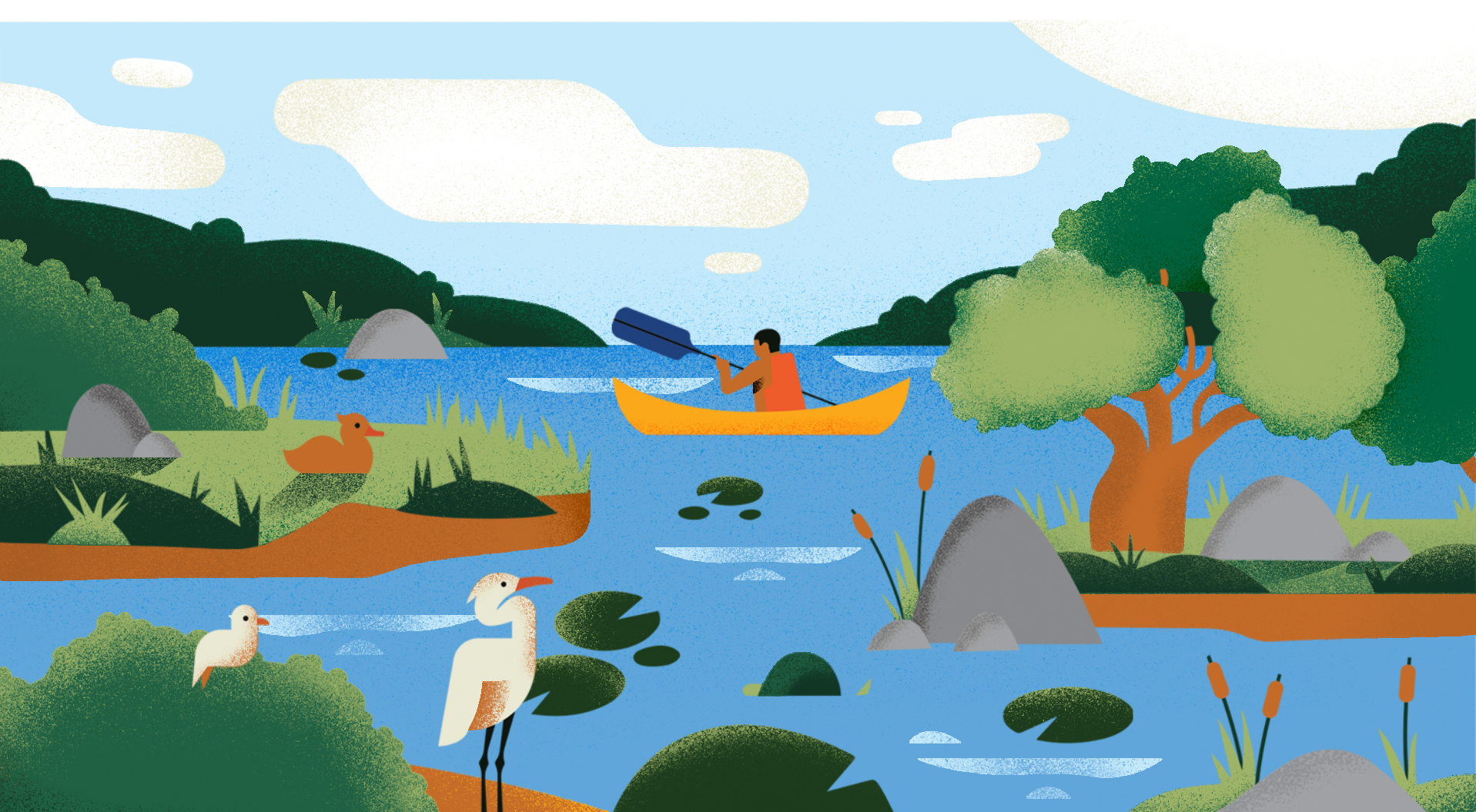Did you know that your laundry load may be affecting the environment in ways you can’t see? The larger ocean plastic pollution problem is widely known, but one of the biggest sources of plastic actually comes from washing synthetic textiles – often called microplastics or micro threads. But – there is a way to stop this pollution at the source, with something called the Guppyfriend! Read on to learn about the microplastic pollution problem, and how you can help from home.
What are microplastics?
Microplastics, or microthreads, are any type of plastic fragment or thread that is less than 5mm in length, according to NOAA. This broad category includes microbeads from cosmetics, as well as plastic pieces that have broken off of larger plastic waste. But, a major source of these microplastics are from washing machines! When we wash synthetic clothing in the washing machine (think things made with polyester or nylon), microplastics can break loose from the synthetic materials – and are too small to be picked up by water filters.
From the washing machine, they go to our oceans and waterways, where they are likely to collect with other plastic pollution. They also have a huge impact on marine life, as their tiny size makes them easy to be ingested by a variety of animals, where they cause health problems or death. This can in turn impact entire food chains, and potentially impact humans who interact with marine food chains. In fact, microplastics have become so prevalent in ocean ecosystems, that microplastics have been found ‘absolutely everywhere’, from bottom living creatures and sediments in the North Sea and Barents sea, to groundwater in the USA, and nearly every river and lake sampled by scientists.
Long story short: microplastics are terrible – for the environment, and everything living on it. And more microplastics are rapidly being produced in a myriad of ways. While reducing your overall waste and plastic usage will be a huge contributor to reducing plastic pollution, we also suggest you look at the microplastics and microthreads you may be producing.
What is the Guppyfriend?
Enter: the Guppyfriend. This laundry washing bag was specifically designed to help the microplastic pollution problem from home, keeping microthreads from getting loose while washing synthetic clothing. This self-cleaning fabric bag is made of a specially designed micro-filter material that reduces clothing shedding, and collects the fibers that do shed. In fact, the Guppyfriend reduces the amount of breaking fibers by 86% from completely synthetic materials and by 79% on partially synthetic materials. In short, it captures microplastics in the washing machine at the source, stopping them from going to our oceans and waterways.
How do I use the Guppyfriend?
Using the Guppyfriend is incredibly simple! To start, collect the synthetic textiles you need to wash. This means anything that contains polyester, nylon, acrylic, spandex, and tons more. This includes anything that only has a small percentage of synthetic fibers, like 90% organic cotton and 10% synthetic materials. Put roughly 10 items into the Guppyfriend bag, close the bag, and wash in the machine as usual. Take out the wet textiles and bag from the wash, and dry the clothing as you would. Then, remove the released microfibers from the hems inside of the Guppyfriend, and dispose them in the trash, so that they don’t end up instead in our oceans and waterways.
The plastic pollution problem is complex, and has a number of causes – not just laundry microfibers. But, synthetic microfibers and microplastics do play a huge role. By investing in a laundry microfiber solution like the Guppyfriend, we can greatly reduce the amount of plastic headed to our natural spaces. Shop the Guppyfriend here!
This blog was first published on August 19, 2020 and was most recently updated on October 27, 2022.

